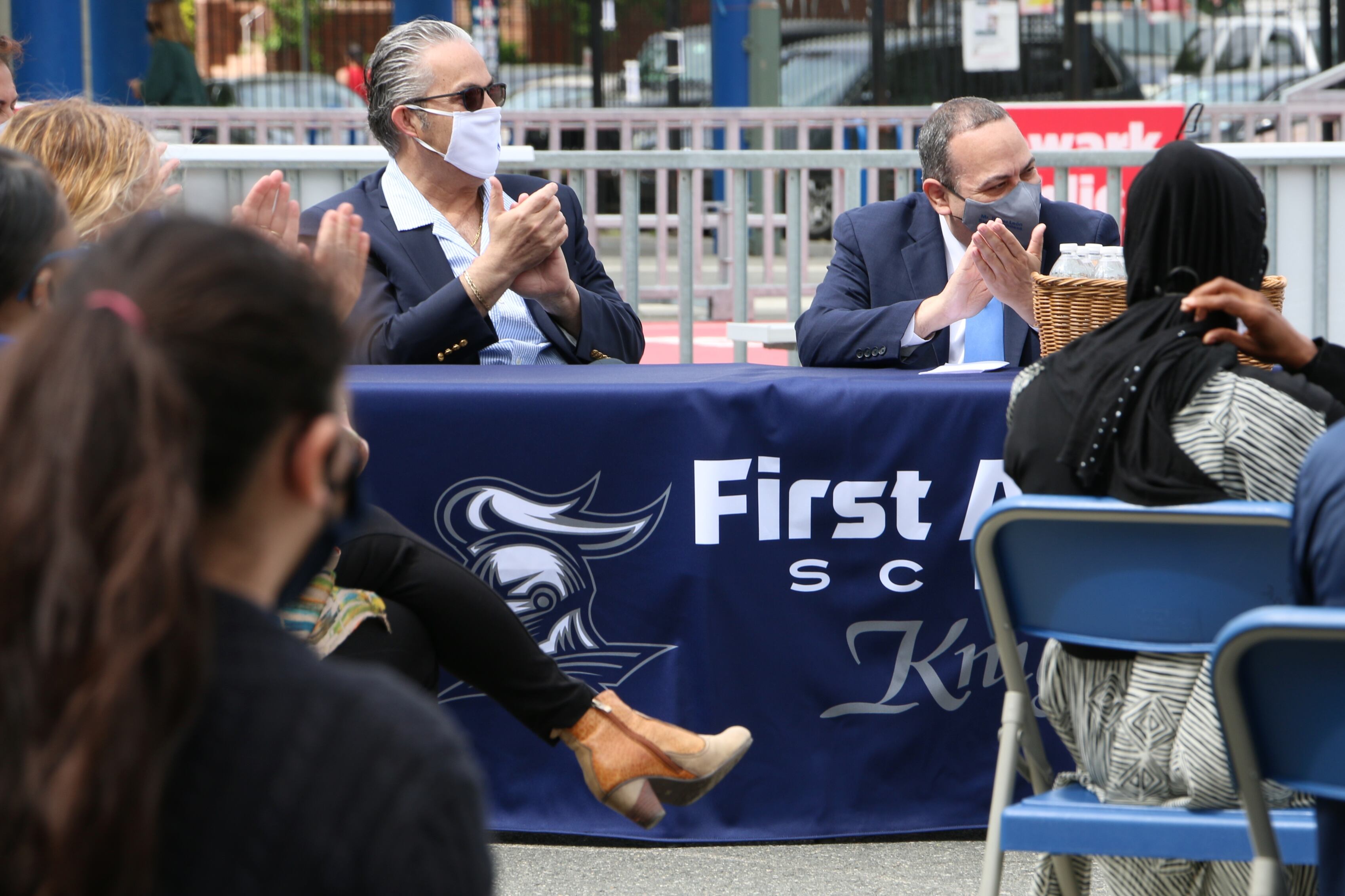The Newark Board of Education and the district teachers union agreed to raise the starting salary for new teachers to $62,000 starting next school year, as part of a deal that includes across-the-board teacher pay increases amid staffing struggles linked to COVID.
Raising the starting salary for new teachers with a bachelor’s degree by $6,500, and by $4,500 for new teachers with a master’s degree, will make the district “one of the most competitive urban school systems in the northeast,” Superintendent Roger León said in a Thursday email announcing the increases.
Meanwhile, more experienced teachers making under $62,000 will get pay increases to match the new starting salary for first-time teachers. Teachers making over $62,000 will receive pay increases of $1,000 over the next two years, according to the new agreement.
“These new salaries will attract fresh talent and at the same time foster retention by increasing the salaries of experienced teachers,” León said in the email.
Due to a “reopening provision” in the Newark Teachers Union contract that allows for the union and district to renegotiate salaries in emergencies, the two parties were able to discuss increasing the starting salary for new teachers as a recruitment strategy. An already small pool of teaching candidates that dwindled further during the pandemic, and the more-competitive salaries offered by other districts, created an emergency situation under the terms of the contract.
The current contract runs through the 2023-24 school year, and negotiations over a new deal are set to begin in January.
For months, the district has had trouble filling vacant teaching positions. It started the school year with 120 instructional vacancies, and began the final month of the school year with 95. A number of teachers also left the district for better paying positions, said John Abeigon, president of the Newark Teachers Union.
“We would see three, four, sometimes five resignations in a single week throughout the year,” Abeigon said, though he couldn’t provide an exact number of resignations. “At that rate, we weren’t going to have any teachers left.”
The increases across the board would bump up Newark Public Schools’ median salary for teachers. As of the 2019-20 school year, the median teacher salary was $65,618 for Newark, which is lower than nearby districts in Essex County, including $72,631 for Belleville, $86,944 for East Orange, $73,085 for Irvington, and $77,368 for Montclair, state data show.
Newark’s new hires in critical areas — such as science, math, special education, bilingual education, and English as a second language — will also be eligible for a $4,000 signing bonus, León said. District employees can also get a $1,000 bonus for referring a new teacher that is successfully on-boarded.
The decision to bump up the pay for Newark teachers follows the district’s plan to hire retired teachers to help fill open positions. In April, the state approved the district’s request to hire retired teachers under a new state law. More than 40 retired teachers had expressed interest in returning to the district at the time.
Newark has also started a teacher pipeline program that encourages high school students to pursue a teaching career and promises a teaching contract with the district after graduating with their bachelor’s degrees.
Newark’s difficulty with attracting and retaining teachers is not new, Abeigon said.
“Our warnings to the district to raise the starting salary pre-date COVID, but the pandemic made it abundantly clear that it was needed,” he said. “Other districts have better salaries and less burdensome conditions than Newark. We have to make it competitive.”
Abeigon said León has also agreed to meet with union members to discuss other ways to boost morale among teachers, and reduce their workload.
Shrinking hiring pool
Earlier this week, the state Board of Education unanimously approved policies that could help widen the pool of prospective teachers by providing an alternate route for those whose grade point averages or standardized test scores fall short of the requirement. Under the new policies, those candidates would receive mentoring and take courses in teaching to earn a standard teaching certificate.
Several staffing problems are growing in the state’s schools. A new report released Thursday shows New Jersey has a shrinking hiring pool, a surge in retirements, and fewer teachers available as substitutes.
“The number of those completing teacher preparation has declined sharply in New Jersey,” according to the report by New Jersey Policy Perspective, a nonpartisan think tank.
The group recommends increasing compensation for teachers, streamlining the process to obtain a teacher certification, and working with teacher preparation programs to attract more candidates of color, among other things.
“If New Jersey does not act soon, there will not be enough qualified candidates to replace teachers leaving the profession,” the report states.
Catherine Carrera is the bureau chief for Chalkbeat Newark, covering the city’s K-12 schools with a focus on English language learners. Contact Catherine at ccarrera@chalkbeat.org.





